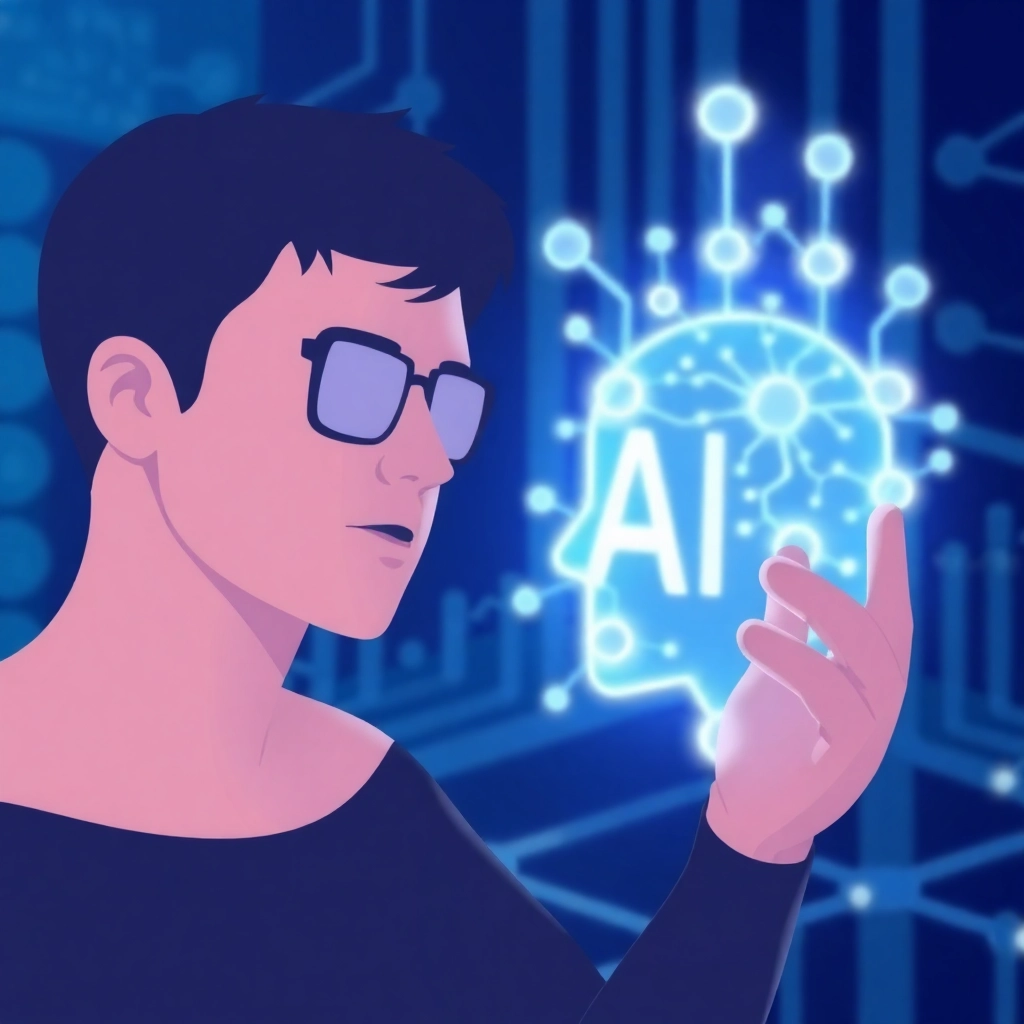[ad_1]
ChatGPT Enterprise helps the Spurs save 1,800 staff hours a month and deepen global fan engagement.
00:0000:00
San Antonio basketball isn’t just a game—it’s a way of life. For over 50 years, the San Antonio Spurs have built their legacy around community, integrity, and team-first values.
Now, as competition expands beyond the court, the Spurs use ChatGPT Enterprise to accelerate operational growth and scale their distinctive culture to reach international markets.

“We were looking to create real competitive advantages,” says RC Buford, CEO of Spurs Sports & Entertainment. “Being early adopters of artificial intelligence is one powerful way to do that.”
Today, teams across the Spurs organization—spanning data analytics, community engagement, and partnerships—have rapidly developed their own GPT solutions, boosting employees’ AI fluency from 14% to over 85% in months.
Driving cultural change to meet global fan expectations
Like every professional sports organization, the San Antonio Spurs face rising expectations. Fans want hyper-personalized stadium experiences, and the Spurs also sought ways to connect authentically with fans beyond San Antonio—especially in France, Argentina, and South Korea.
Inside the club, teams look for faster ways to analyze data, create content, and expand leadership programs and community impact, often with less overhead.
The Spurs realized that meeting these goals required more than a new technology mandate; it called for new ways of working together.
“We’re very intentional about not chasing shiny objects,” says Charlie Kurian, Director of Business Strategy & Innovation at Spurs Sports & Entertainment. “We start with the goals, not the tools. Then we ask: what’s the most human-centered, efficient way to get there? We didn’t want to just push a tool. We wanted to create genuine pull.”
Building momentum with a people-first rollout
After reviewing several AI vendors, the Spurs chose OpenAI for its cultural fit and the ease with which teams could weave ChatGPT Enterprise into daily workflows.
“People are on all waves of the spectrum in terms of feelings, thought, and usage of LLMs.” Kurian says. “We piloted other tools and adoption was low. But with OpenAI, we don’t have to sell the tool.”
Kurian and his team introduced ChatGPT Enterprise in phases, beginning with 150 pilot users. In-person training, custom onboarding guides, and an internal AI hackathon prioritized peer learning and kept the focus on experimentation, not outcomes.
“We knew that if we could make a bet on the most valuable asset that we have, which is our people, and really meet them where they’re at, that would pay dividends,” notes Kurian. “When we came to OpenAI, it wasn’t just a vendor fit, it was a great cultural fit.”

Delivering business value with purpose-built GPTs
With a strong foundation in place, teams across the San Antonio Spurs began creating GPTs that solve specific business problems in community outreach, operations, partnerships, and fan engagement. Dozens are already in use:
- Fan Voice GPT: Business intelligence analyst Daniel Arzouman built a custom GPT that scans thousands of post-game comments and delivers sentiment summaries in minutes. “What took hours now takes minutes,” Arzouman says. “We quickly see where experiences shine, what to improve, and why it matters emotionally.”
- Transformative Leadership GPT: Learning and development manager Sarah Cardenas built a GPT that tailors leadership workshop content to local cultures. “Programming that once required weeks now takes hours,” she notes. “Our workshops resonate more deeply and extend our cultural impact.”
- Counterfeit Merchandise GPT: Andre Moyce, a retail strategist with the Spurs, uses ChatGPT to flag suspicious resale listings by matching images and details against official Spurs inventory data. “Before I had to build all financial planning documents manually and validate them in a vacuum,” he says. “ChatGPT speeds up the entire process. Some future projects wouldn’t have been possible without it.”
- Spurs Culture GPT: Trained on a 50-part docuseries, it helps staff weave team values, voice, and milestones into everyday work.
- Partnership Insights GPT: This GPT converts complex sponsorship data into clear, actionable insights, empowering partners to maximize visibility, media value, and brand impact with precision.
- Cultivating Conversations through Feedback GPT: A custom GPT that equips staff with conversation frameworks and toolkits grounded in Spurs University psychological safety content, effective feedback, and DISC profiles.
Each solution was built by employees who saw a clear need and felt increasingly fluent with AI. To continue to accelerate progress, the Spurs recently hosted an AI Challenge Day where more than 150 staff members prototyped their own GPTs.
Realizing ROI in months
By prioritizing comfort and fluency rather than usage quotas, the San Antonio Spurs saw rapid returns in months:
- AI fluency jumped from 14% to more than 85%
- Employees save over 1,800 hours each month
- GPT solutions now engage fans in Spanish and French
- 94% of users report greater confidence with LLM tools
Spurs employees say one reason adoption has stuck is because the tool itself, ChatGPT, is genuinely intuitive.
“We get emails from people saying, ‘Hey, how can I get access?’” Kurian says. “The pull and demand is organic.”

Cultivating a culture of continuous AI learning
San Antonio Spurs leadership treat AI as a lever for learning, alignment, and lasting impact, not a disruption. “I hope to create efficiencies that allow the brilliant minds around me to solve even bigger problems,” says Buford.
That outlook now shapes their roadmap. The upcoming Spurs Performance Institute will feature a research track on AI and coaching, developed with partners such as UTSA and the Air Force to study decision-making and cognitive performance.
Inside the organization they are moving from exploration to enablement: supporting power users, surfacing high-impact GPTs, and hosting internal hackathons to spread new ideas.
“What excites me most is seeing people light up,” Kurian says. “They try something new, it works, and they start imagining what else is possible.”

An adoption blueprint any organization can follow
The San Antonio Spurs’ adoption model(opens in a new window) comes down to two transferable principles:
- Partner with a team that understands both the technology and your culture
- Choose a tool that feels intuitive on day one
“If a tool requires a manual, something’s gone wrong,” says Buford.
Buford has guided the club through decades of change, from pioneering international scouting to player-care programs now standard across the NBA, and his mindset remains the same with AI: experiment with purpose and stay rooted in who you are.
“We’re not just looking to adopt AI because it’s trendy,” adds Kurian. “We’re doing it because it helps us serve our fans and our people better.”
Interested in learning more about ChatGPT for business?
Keep reading
[ad_2]




